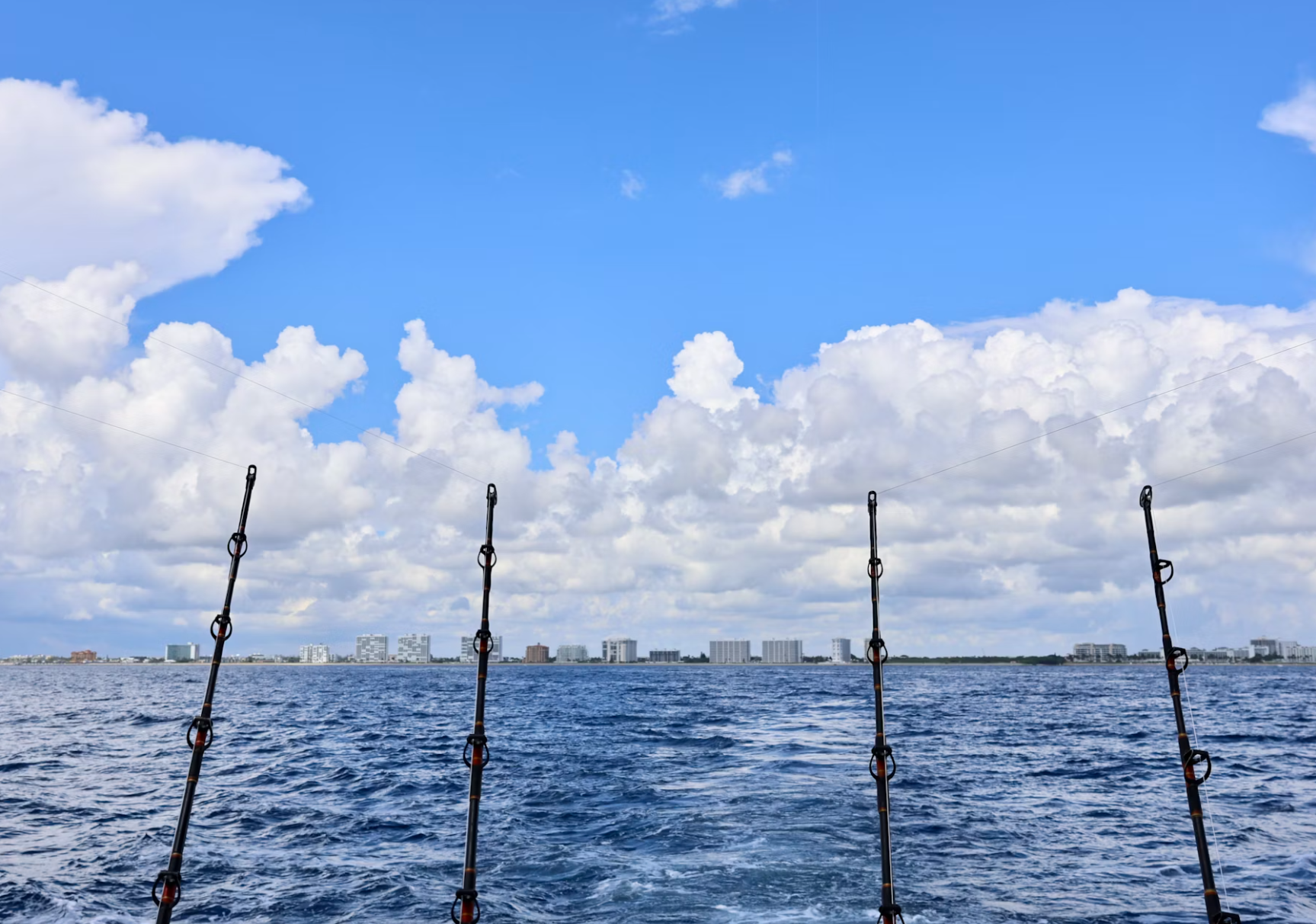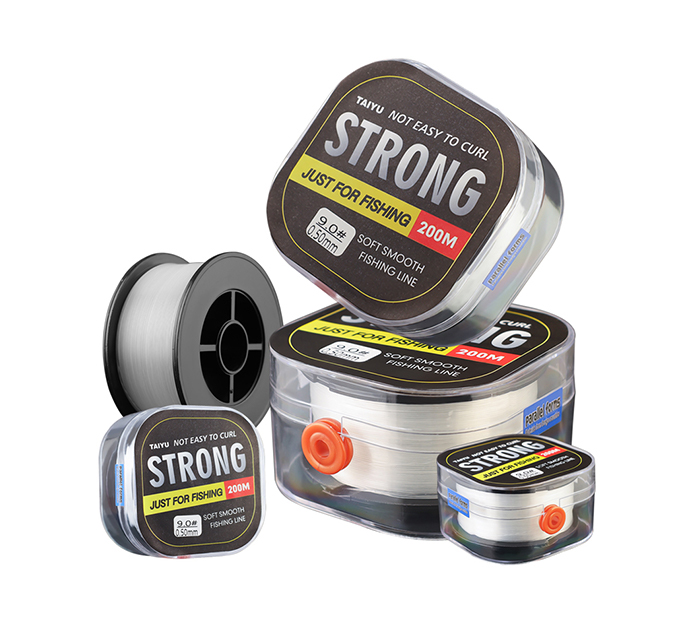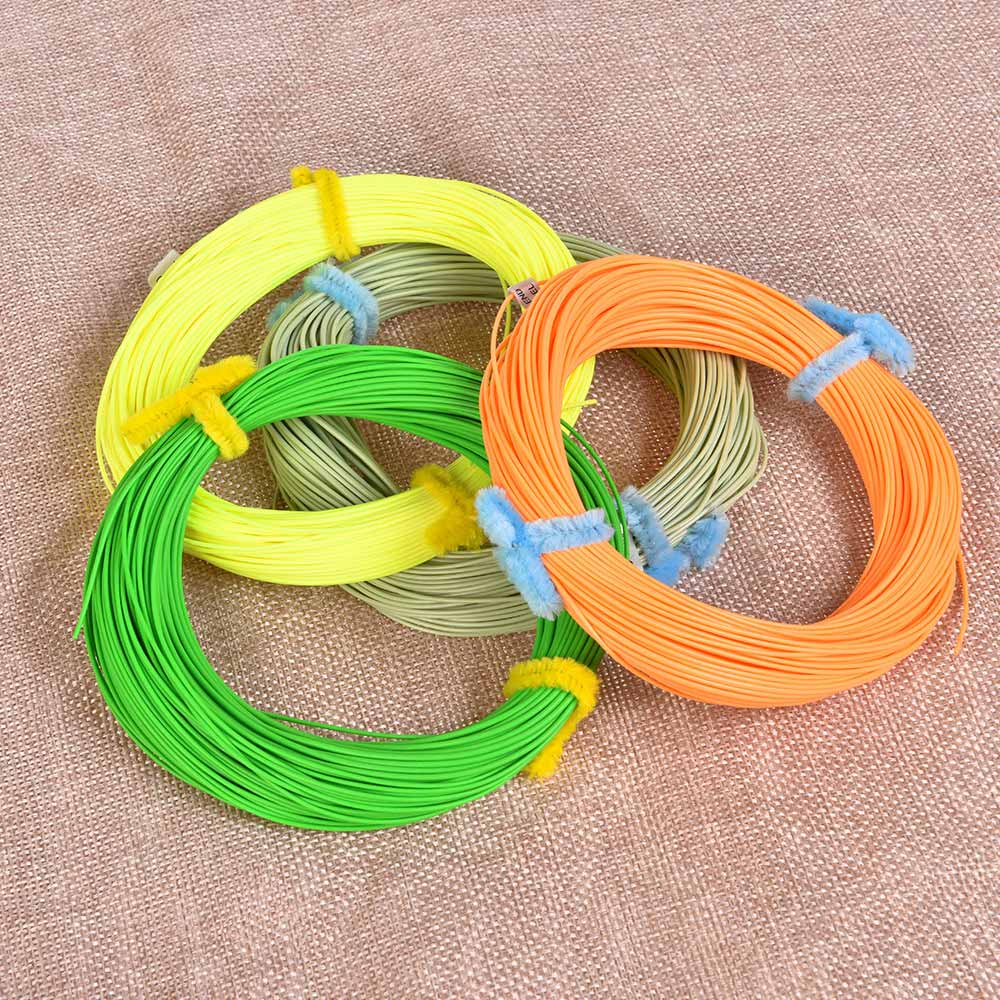Saltwater fishing is tough on gear. You face corrosion, huge fish, and endless casting. A weak line ruins your day. Picking the right saltwater fishing line can turn a bad trip into a great one. The company in China, Laike, makes top-notch gear that’s tough and budget-friendly. With over ten years in the game, they ship to more than 20 countries. Their rods, reels, and lines, like the Strong Nylon String Fishing Line for heavy saltwater battles and the Fly Fishing Line for pinpoint fly casts, are built to last. Their know-how and custom order options make them a go-to for anglers and shops.

What Makes a Saltwater Fishing Line Great for Deep Sea Challenges?
Saltwater fishing is rough. Reefs cut lines. Big fish like marlin pull hard. Your line needs to be strong and dependable. A great line stands out in three big ways. It helps you tackle anything the ocean throws at you.
Strong Build and Tough Against Wear
Your line must handle big pulls. High-quality nylon, with tightly packed molecules, holds up when a 50-pound tuna fights back. It also needs to resist scrapes from coral or rocks. A tough line lasts longer. You won’t need to replace it as often. Look for materials made to keep their strength during hard fights.
Good Stretch and Shock Handling
A line with a bit of give soaks up sudden tugs. Nylon, with its flexible chain structure, cushions the jolt when a fish bolts. This stretch keeps hooks from ripping out. It’s key during trolling, when a fish hits fast. You stay in control without breaking the line.
Hard to See and Quick to Sink
Fish get scared in clear water. A line that blends in, like fluorocarbon or some nylons, tricks sharp-eyed fish. Quick-sinking lines, made from dense stuff, dive deep fast. They’re perfect for catching fish like grouper near the bottom. Change your reeling speed to hit the right depth, and you’re set.
Why Is Nylon the Top Pick for Saltwater Fishing Wins?
Nylon is a favorite for anglers chasing big fish in rough seas. It’s got qualities that make it shine. You get strength and reliability without spending too much. Whether casting from a boat or standing on a rocky shore, nylon keeps you hooked.
Lasts Long in Harsh Water
Saltwater ruins weak gear. Nylon stands up to it. With a density close to water’s (1.14), it fights off rust and sun damage. Special treatments make it even better against water. It ages slowly, even after days in salty waves. This means fewer line breaks when you’re far out at sea.
Strong Yet Affordable
You don’t need to empty your wallet for a good line. Nylon gives you power and flexibility at a fair price. Its knots hold strong, losing just 10% strength where they’re tied. That’s better than most lines, where knots are weak spots. It’s a hit with pros and casual anglers alike.
Works in All Kinds of Fishing
Nylon handles everything. Trolling for huge fish? Rock fishing in coral? It’s got you covered. Its softness stops tangles, making it easier to use than braided lines. Use it with a hand rod for platform fishing or a sea rod for long casts. It’s flexible and easy to control.
Can Fly Fishing Lines Boost Your Saltwater Skills to Pro Levels?
Fly fishing in saltwater is tricky. Wind, waves, and cautious fish make it hard. You need a line that casts right and holds up. A good fly fishing line can take your coastal fishing to the next level, especially for fish like bonefish or tarpon.
Better Casting in Windy Seas
Saltwater fly fishing means fighting gusty winds. A fly fishing line with a heavy front end slices through air. It lands your fly exactly where you want. This accuracy is vital in shallow flats or rough surf. You hit your mark every time.
Matches Saltwater Fly Rods Perfectly
A fly line needs to work with your rod. Lines made for saltwater rods, in WF sizes #4 to #8, make casting smooth. They help you retrieve with control. This teamwork between rod and line makes fishing easier and more effective.
Less Coiling for Easy Handling
A line that curls up is a pain. Low-memory fly lines stay straight. They don’t tangle. This is a big help when casting over and over in tight spots, like near mangroves chasing redfish. You keep fishing without fuss.
How Does the Strong Nylon String Fishing Line Beat Others?
When you’re pulling in a giant from deep water, your line can’t fail. The Strong Nylon String Fishing Line is made for those high-pressure moments. It’s got features that make it stand out in saltwater fishing.

Tough Nylon for Big Fish
This line uses strong nylon with a tight structure. It can handle the wild runs of fish like marlin or tuna. It doesn’t snap under pressure. Its sturdy build is perfect for heavy-duty battles. You feel confident when the fish fights hard.
Custom Sizes for Your Needs
Every angler is different. This line comes in various thicknesses, from thin for smaller fish to thick for monsters. It’s available in lengths like 200 meters for long runs. You can order custom sizes through OEM services. It fits your fishing style perfectly.
Reliable for Pros and Shops
For charter captains or store owners, consistency matters. This line’s maker offers one-stop ordering. They handle small or big orders with quick delivery. With over ten years in the business, they deliver steady quality. You get dependable gear for your shop or fleet.
What Special Features Make Fly Fishing Lines Saltwater Stars?
Fly fishing lines aren’t just for rivers. In saltwater, they’re like precision tools. They have small details that make a big impact. These features help you outsmart tricky fish in tough conditions.

Heavy Front for Fast Depth
A heavy front taper gets your fly deep quickly. It’s key for fishing in deep channels or tidal zones. The line sinks naturally, copying how baitfish move. This triggers bites from fish like permit. You reach the right spot fast.
Color Choices for Different Waters
Water changes from clear to cloudy. Your line should too. Multi-color fly lines match murky or clear conditions. They’re less likely to spook fish. Pick bright colors for dull days or soft ones for clear water. It’s all about blending in.
Welded Loops for Strong Ties
Knots in rough seas are a hassle. Welded loops let you attach leaders fast and securely. They don’t weaken the line. This saves time and keeps your setup strong when a fish strikes hard. You stay ready for action.
Why Pick Laike for Top Saltwater Fishing Lines?
Your line is only as good as the company making it. Laike, with ten years of global sales, delivers awesome lines with great service. Here’s why they’re a smart pick for anglers and businesses.
Ten Years of Global Gear Sales
With a decade of experience in the fishing tackle world, Laike ships to over 20 countries and regions, from Japan to Brazil. Their 500+ products, like lines, rods, and reels, are tested in real places like coastal waters and rocky rivers. You get gear that’s ready for the fight.
Full Customization from Start to Finish
Need one spool or a huge order? Their OEM and ODM services let you tailor lines for specific markets. From sample designs to final shipping, they make it easy. You get exactly what you need, no hassle. Their process is smooth and quick.
Quick Shipping and Flexible Orders
Time matters, especially for shops. This supplier promises on-time delivery every time. They offer flexible order sizes for small stores or big distributors. Their 24-hour support keeps your orders on track. You stay stocked without delays.
FAQ
Q1: Why does nylon beat other materials in saltwater fishing?
A: Nylon’s strength, flexibility, and rust resistance make it perfect for tough saltwater. Its 90% knot strength keeps it from breaking at ties.
Q2: Can fly fishing lines handle big saltwater fish?
A: Absolutely. Fly lines in WF sizes #4 to #8 are built for fish like tarpon. They offer accurate casting and strong pulling power.
Q3: How long does a good saltwater fishing line last?
A: With care, like rinsing after trips, a quality nylon line lasts 2-3 seasons of heavy saltwater use. It’s built to endure.
